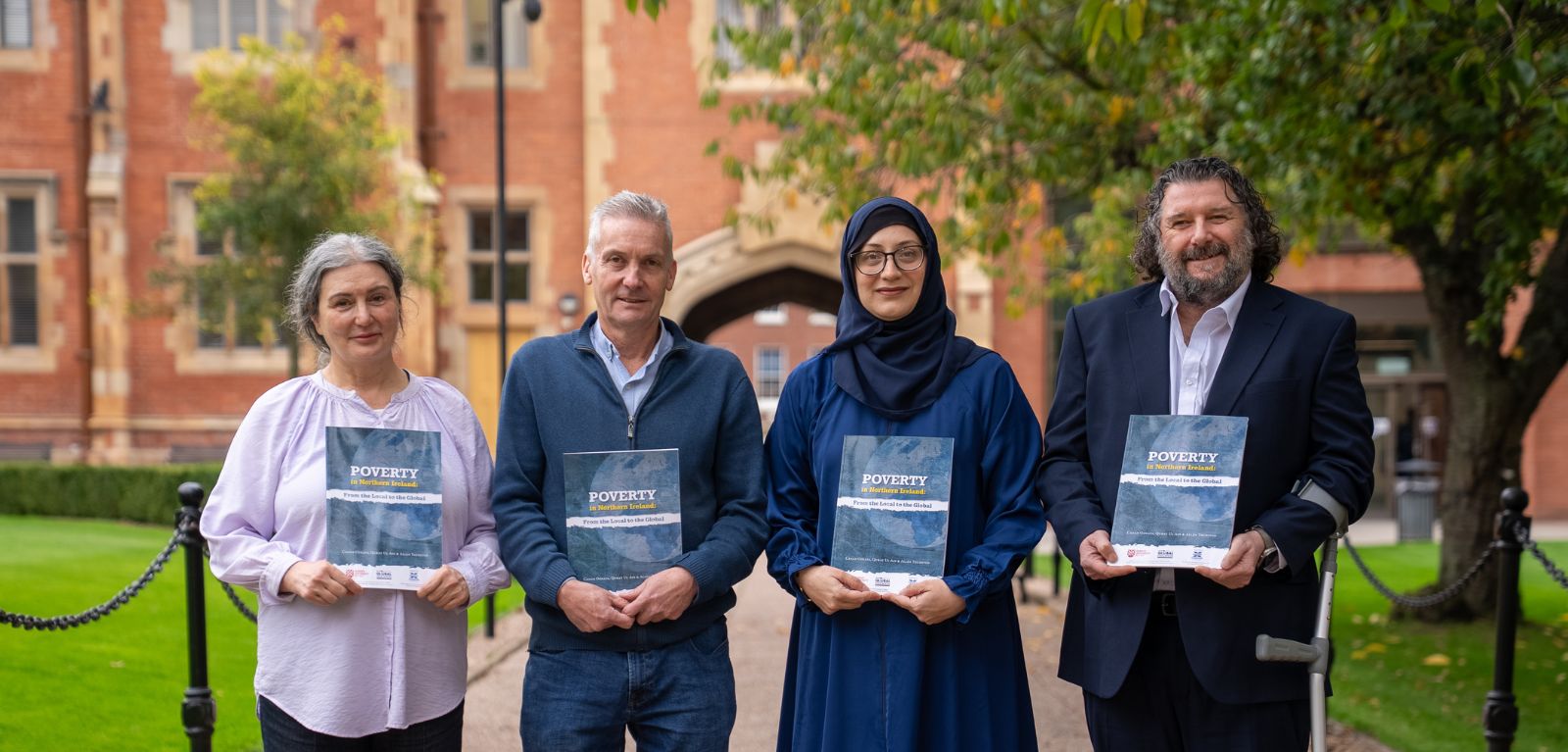Lower wages in Northern Ireland a major driving factor in high poverty levels, research finds
Research from Queen’s has revealed that poverty levels in Northern Ireland are high, despite low unemployment rates and economic progress in recent years.

The report showed that 18% of children in Northern Ireland are growing up in poverty (Northern Ireland Audit Office, 2024), with 8% of these children living in persistent poverty, even though the region’s unemployment rate stands at just 1.6% (Clark, 2025).
The report attributes the high poverty levels to Northern Ireland’s low average annual wages, which are amongst the lowest across developed countries and the lowest in the UK. In comparison, the Republic of Ireland ranks one of the highest for average income levels globally (World Data, 2024). Disability exacerbates the risk of living in poverty. 44% of children living in poverty, live in households where someone is disabled (O’Hara & Kerr, 2021). The Joseph Rowntree Foundation (2024) also report that 31.5% of disabled people live in poverty.
The research was led by Professor Allen Thurston, and PhD researchers Canan Ozkaya and Qurat Ul Ain, from the School of Social Sciences, Education and Social Work at Queen’s, in collaboration with the Centre for Global Education and with funding from Halifax Foundation’s Empower Fund.
The team reviewed 662 published reports and studies on poverty in Northern Ireland, alongside comparative data from England, Scotland, Wales, the Republic of Ireland, and the G12 countries.
Professor Thurston commented: “Poverty is persistent and endemic in Northern Ireland. Living in poverty brings poorer health outcomes, poorer educational outcomes, issues with keeping warm and fed in the winter and a shorter life expectancy. It is now essential that politicians act decisively to reduce poverty in Northern Ireland. One way the Assembly can do this is by developing a coherent Anti-Poverty Strategy with clear targets that is resourced to lift our population out of poverty.”
The researchers have made a series of evidence-based recommendations for inclusion in the Northern Ireland Executive’s forthcoming Anti-Poverty Strategy, setting out practical steps to reduce - and potentially eradicate - poverty in the region.
Key recommendations include:
- Provision of financial aid packages to ensure all households have monthly income of greater than £373 per week (the figure set by the Government as being the threshold for living in poverty or not living in poverty).
- Reform welfare policies and move away from neoliberalism ideology underpinning these.
- Address health inequalities with significant financial investment into life-changing interventions in the poorest areas of Northern Ireland, where health inequalities are greatest.
- Invest in, and support, affordable childcare to ensure parents (especially those who may be primary care givers) can take their place in the workforce and by being economically active increase their household income.
- Improve the quality and availability of housing, ensuring affordable rental property is well insulated, energy efficient, and free from damp and mould. Improve access to all forms of education, especially for disadvantaged groups, where publicly funded schools should educate a representative section of the communities they serve.
Stephen McCloskey, Director of the Centre for Global Education said: “The international comparisons in this report show that despite having a very low unemployment rate average incomes in Northern Ireland are low and many workers struggle to meet every day needs. The report also highlights persistent levels of poverty because of inadequate welfare policies, rising living costs and the lack of a cohesive anti-poverty strategy. These findings suggest that poverty is a political choice and government could and should do much more to support families on welfare and struggling on low incomes. This comprehensive report should be closely studied and acted upon by policymakers.”
The full report, ‘Poverty in Northern Ireland: From the Local to the Global’, is available here: https://pure.qub.ac.uk/en/publications/poverty-in-northern-ireland-from-the-local-to-the-global
Media
Media enquiries to Zara McBrearty at Queen's Communications Office on email: z.mcbrearty@qub.ac.uk